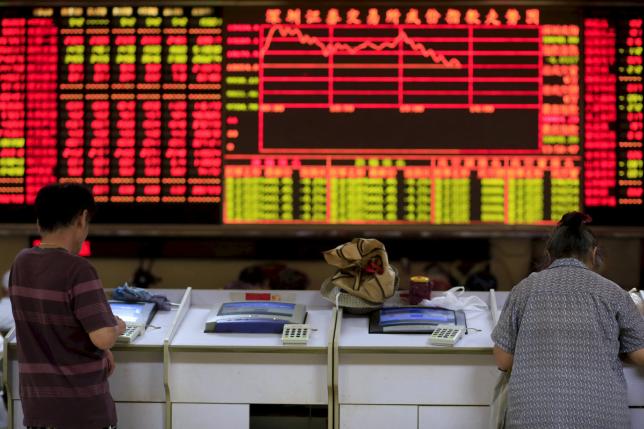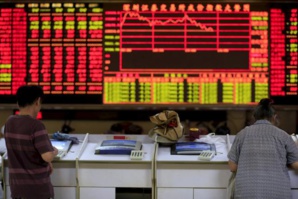The major economies of the world, including China, which occupies a big space in it, have caused the investors to reassess the financial “outlook for global growth”, informed the Bank of International Settlements on Sunday, the 13th September 2015. Meanwhile, the growing concern in regards to the global economic market still prevails.
The turmoil in the commodities and stock market lasted for nearly a month. Therefore, the recent “quarterly update” of major central banks’ forum that is based at Switzerland refrained from stating any kind of predictions so as to give a clue to the approaching turbulence which is expected to deepen. The report was a introduced by Claudio Borio, “head of the BIS' monetary and economic department”, whereby he commented that China’s stock market fall is an indicative of a “increasingly stark financial imbalances” which requires a “broader response”. He said:
"We are not seeing isolated tremors, but the release of pressure that has gradually accumulated over the years along major fault lines”.
The risks that can originate from the debt, dominated by American currency, of the accumulative values of “trillions in dollar” which will have a repercussion across the developing nations’ “corporate sector”, are pointed by the report. Moreover, the related increase in the asset prices is also mentioned. As per the data given by BIS, the first quarterly outflow of capital in the banks of China has been around “$109 billion” in the year of 2015. However, the report also adds that the outflow may still continue to “trickle out”. In the bank report’s summary it is stated:
"Investors increasingly focused on growing vulnerabilities in emerging market economies (EMEs), particularly China, as they reassessed the global growth outlook.”
The management of Yuan by China has been so far on an instable ground, whereby it has also triggered some changes as per the managerial aspects of Chinese currency, which further added to the market turmoil. In fact it also writes:
"The Chinese authorities’ decision in August to allow the renminbi to depreciate against the dollar gave markets a renewed jolt”.
"The move intensified investors’ concerns about growth prospects for China, EMEs more broadly, and ultimately, the global economy."
References:
http://www.reuters.com
The turmoil in the commodities and stock market lasted for nearly a month. Therefore, the recent “quarterly update” of major central banks’ forum that is based at Switzerland refrained from stating any kind of predictions so as to give a clue to the approaching turbulence which is expected to deepen. The report was a introduced by Claudio Borio, “head of the BIS' monetary and economic department”, whereby he commented that China’s stock market fall is an indicative of a “increasingly stark financial imbalances” which requires a “broader response”. He said:
"We are not seeing isolated tremors, but the release of pressure that has gradually accumulated over the years along major fault lines”.
The risks that can originate from the debt, dominated by American currency, of the accumulative values of “trillions in dollar” which will have a repercussion across the developing nations’ “corporate sector”, are pointed by the report. Moreover, the related increase in the asset prices is also mentioned. As per the data given by BIS, the first quarterly outflow of capital in the banks of China has been around “$109 billion” in the year of 2015. However, the report also adds that the outflow may still continue to “trickle out”. In the bank report’s summary it is stated:
"Investors increasingly focused on growing vulnerabilities in emerging market economies (EMEs), particularly China, as they reassessed the global growth outlook.”
The management of Yuan by China has been so far on an instable ground, whereby it has also triggered some changes as per the managerial aspects of Chinese currency, which further added to the market turmoil. In fact it also writes:
"The Chinese authorities’ decision in August to allow the renminbi to depreciate against the dollar gave markets a renewed jolt”.
"The move intensified investors’ concerns about growth prospects for China, EMEs more broadly, and ultimately, the global economy."
References:
http://www.reuters.com






